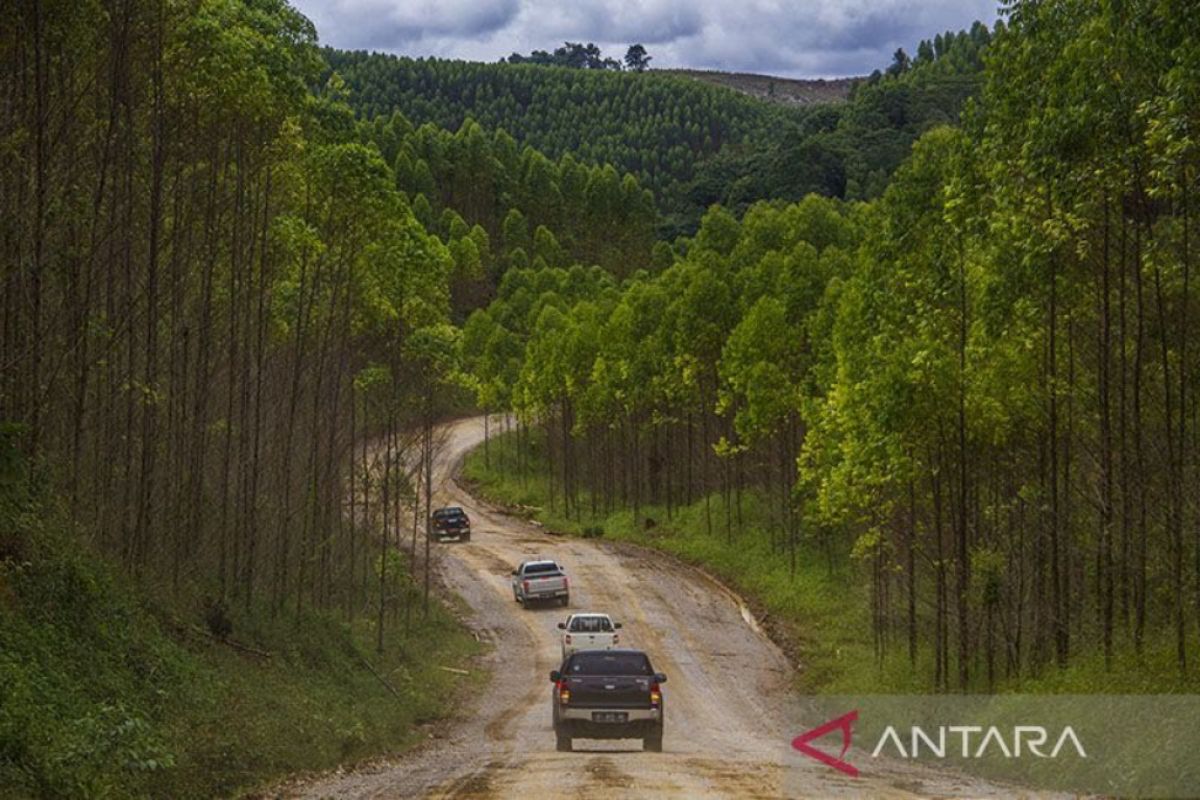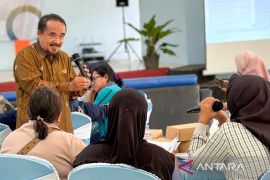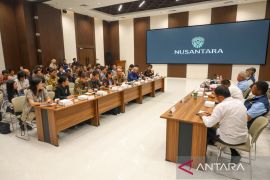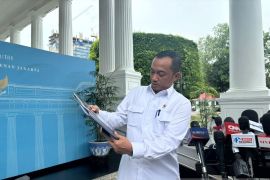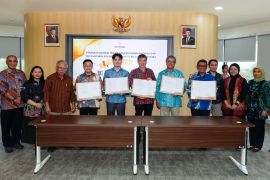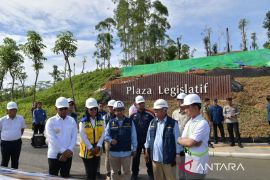IKN's authority expects inputs from various branches of science, including biology, so that it truly becomes an eco-friendly cityYogyakarta (ANTARA) - Nusantara Capital City's (IKN's) authority expects biological experts to partake in supporting the implementation of the eco-friendly forest city concept in IKN.
Biological experts are expected to innovate to solve environmental problems faced during IKN's development, Nusantara Capital City Authority Transition Team Expert Staff Wicaksono Sarosa noted during a national seminar on Biology's Contribution in Sustainable Nusantara Capital City Construction.
"IKN's authority expects inputs from various branches of science, including biology, so that it truly becomes an eco-friendly city," he stated at the Gadjah Mada University Senate Hall, here, Wednesday.
Biological experts can help in determining the most effective types of trees to act as carbon absorbers and microclimate creators in the city.
"Moreover, these trees should be able to support the life of urban animals, especially insects and birds," he added.
The development of IKN as a forest city refers to several established principles, he highlighted.
These comprise zero deforestation, biodiversity conservation, sustainable forest management, carbon stock bolstering, involvement of local and indigenous populations, and land management and use improvement.
According to Sarosa, 75 percent of the forest established as a protected zone in IKN poses a challenge on its own within the scope of development of a dense city concept.
This concept is being applied, so that development does not spread to the city outskirts that may cause further deforestation.
An animal zone spanning 30 thousand hectares will also be built in North IKN as well as a restoration zone for degraded areas and forest with large-scale nursery in Mentawir, he revealed.
However, the type of soil in Nusantara, which is largely clay shale, with low bearing capacity, poses a problem, he pointed out.
This soil is quite hard in enclosed conditions, though degradation will happen on coming into contact with air, thereby making it unstable on land, with a relatively high slope, he explained.
According to Sarosa, this type of soil has a low fertility rate that hinders the efforts to restore forests and develop a food cultivation zone.
"These challenges should be resolved that becomes an opportunity for biological experts in Indonesia to contribute to the development of IKN," he remarked.
Related news: Gov't pushes circular economy implementation in IKN development
Related news: Indonesia invites Japanese companies to develop smart cities in IKN
Related news: New capital must be realized as forest city: PUPR Ministry
Translator: Luqman Hakim, Fadhli Ruhman
Editor: Sri Haryati
Copyright © ANTARA 2022
